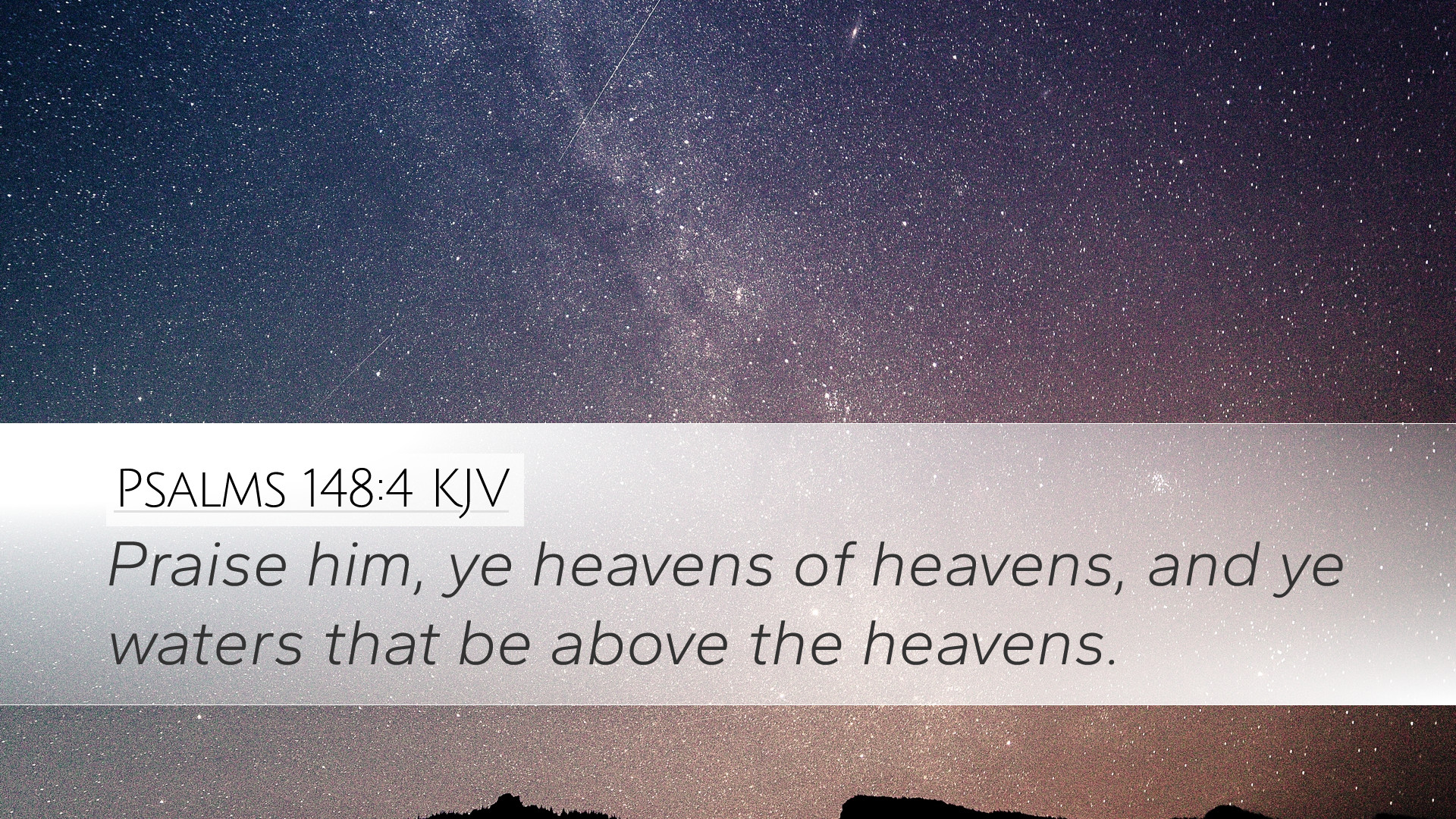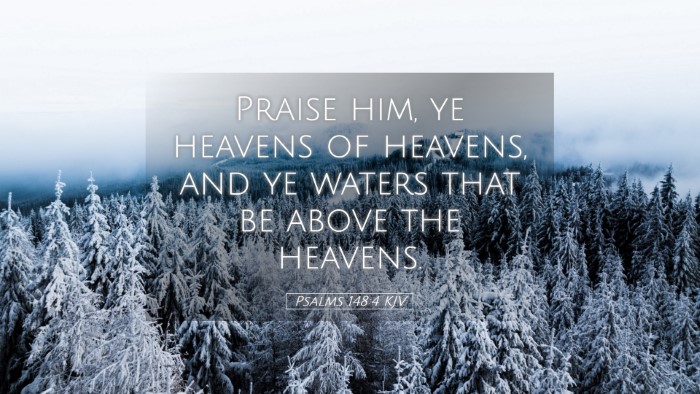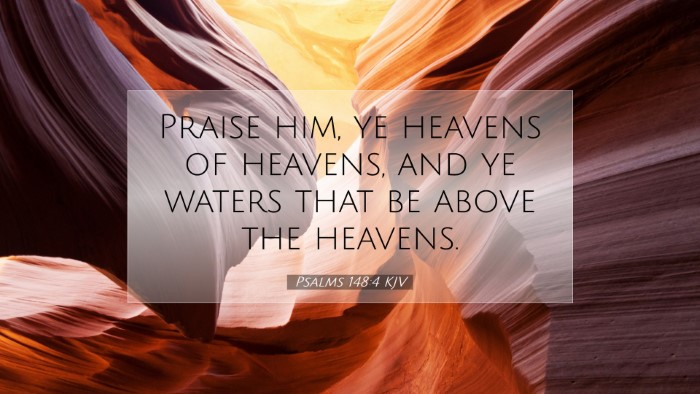Psalms 148:4 - A Commentary
Verse Text: "Praise him, ye heavens of heavens, and ye waters that be above the heavens."
Introduction
The Psalmist invites creation itself to join in the act of praising the Lord. This psalm is part of a larger category of psalms known as "Hallelujah Psalms," where the call to worship is emphasized. In this verse, there is a particular focus on the heavens and the waters above them, indicating the magnitude of God's creation and the extent to which all elements of creation participate in His glory and majesty.
Theological Significance
This verse encapsulates central theological themes in Scripture, notably the omnipotence of God and His sovereign rule over all creation. It suggests that not only human beings but all aspects of creation are called to recognize and glorify their Creator. The heavens and the waters symbolize God's transcendent nature and the universality of His reign.
Heavens of Heavens
Matthew Henry remarks that the "heavens of heavens" refers to the highest heavens, presumably the abode of God where His glory dwells. This highlights God's exalted position and invites a reflection on the celestial beings who reside there, including angels and other heavenly hosts. They are often depicted as worshippers in the presence of God.
Waters Above the Heavens
Adam Clarke notes that the phrase "waters that be above the heavens" can evoke the image of God’s might displayed in the creation narrative found in Genesis. The waters represent divine sovereignty over chaos, suggesting that every element of creation is subject to God's command.
Literary Context and Structure
Psalm 148 is structured in a way that first calls upon various elements of creation to praise God. The encouragement begins in the heavens, moves to the heavenly beings, and then transitions to earthly creation. This verse serves as a pivotal point, emphasizing the heavenly and watery realms before going into the praise of earthly beings.
Application for Believers
For pastors, students, theologians, and Bible scholars, this verse provides rich material for sermons, teachings, and academic study. It offers insights into the nature of worship and the universal call to praise God. Here are several applications derived from the text:
- Worship as a Universal Act: Just as the heavens and waters are called to praise God, believers should understand that worship transcends boundaries. It unites all of creation in a singular purpose—glorifying God.
- The Majesty of Creation: Reflecting on the grandeur of the heavens can enhance the believer's appreciation for God’s creative work. This can lead to a deeper sense of awe and reverence in worship.
- The Role of Nature in Worship: Nature itself serves as a witness to God's glory. Pastors can draw parallels between the beauty in creation and God's character, encouraging individuals to cultivate a worshipful perspective in their daily lives.
- Divine Sovereignty: Understanding that even the chaos represented by the "waters above" is under God's authority reassures believers of God’s control amid life's uncertainties.
Pastoral Insights
In pastoral ministry, Psalm 148:4 can inform the way congregations approach worship. Encouraging congregational participation in worship, emphasizing the importance of recognizing the beauty of God's creation, and eliciting feelings of awe and response to divine majesty can foster a vibrant worship culture within the church.
Conclusion
In Psalm 148:4, the call to the heavens and the waters to praise God serves as a profound reminder of the interconnectedness of creation and the consistent invitation to worship. For believers, the verse not only speaks to their direct relationship with God but also to their place within the broader spectrum of His creation. This psalm emphasizes that praise is a cosmic phenomenon, transcending human limitations and reaching into the essence of all existence. As one reflects on this verse, may the call to worship echo in their hearts and lead to a life marked by praise and reverence toward the Creator.


